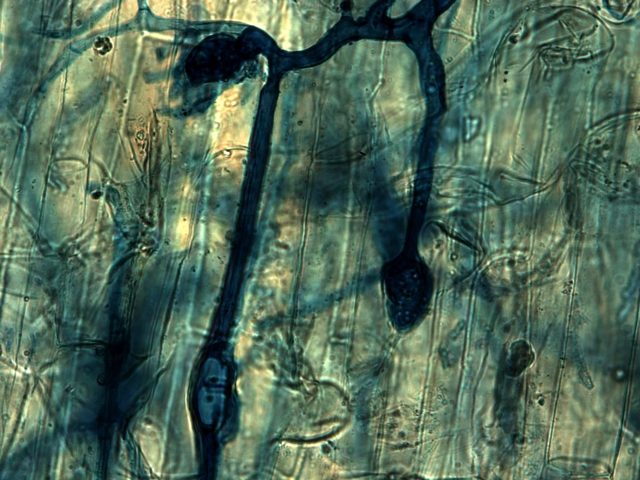Research has shown that arbuscular mycorrhizal fungi, including Rhizophagus irregularis, form a mutualistic symbiotic relationship with cannabis plants. The fungi colonize the roots of plants and provide them with increased nutrient uptake, water uptake, and resistance to stress. In return, the plants provide the fungi with carbohydrates that they produce through photosynthesis.
Several studies have shown that Rhizophagus irregularis can improve the growth and yield of a variety of crops. For example, a study published in the journal Applied Soil Ecology found that Rhizophagus irregularis improved the growth and nutrient uptake of tomato plants. Another study published in the Journal of Plant Physiology found that Rhizophagus irregularis improved the growth and yield of soybean plants.
Rhizophagus irregularis has also been shown to improve the quality of agricultural products. For example, a study published in the journal Plant and Soil found that Rhizophagus irregularis increased the protein content of soybeans. Another study published in the Journal of Agricultural and Food Chemistry found that Rhizophagus irregularis increased the starch content of corn.
Overall, Rhizophagus irregularis is a promising arbuscular mycorrhizal fungus for use in agriculture. Its ability to improve plant growth, yield, and quality of agricultural products makes it a cost-effective and environmentally friendly alternative to traditional agricultural practices.
Research documenting the relationship between Rhizophagus irregularis and Cannabis:
- A study published in the Journal of Agricultural and Food Chemistry in 2018 found that inoculating Cannabis plants with Rhizophagus irregularis improved the plant’s growth, nutrient uptake, and cannabinoid production. The researchers found that the plants inoculated with Rhizophagus irregularis had higher levels of THC, CBD, and other cannabinoids compared to the control group.
- Another study published in the journal Frontiers in Plant Science in 2017 found that Rhizophagus irregularis improved the growth, nutrient uptake, and water use efficiency of Cannabis plants grown under drought conditions. The researchers found that the plants inoculated with Rhizophagus irregularis had higher levels of chlorophyll, carotenoids, and antioxidants, which helped the plants to tolerate drought stress.
- A study published in the journal Mycorrhiza in 2016 found that Rhizophagus irregularis improved the growth and phosphorus uptake of Cannabis plants grown in a low-phosphorus soil. The researchers found that the plants inoculated with Rhizophagus irregularis had higher levels of phosphorus in their leaves and had a greater biomass than the control group.
These studies demonstrate that Rhizophagus irregularis can have a positive impact on the growth, nutrient uptake, and cannabinoid production of Cannabis plants.
